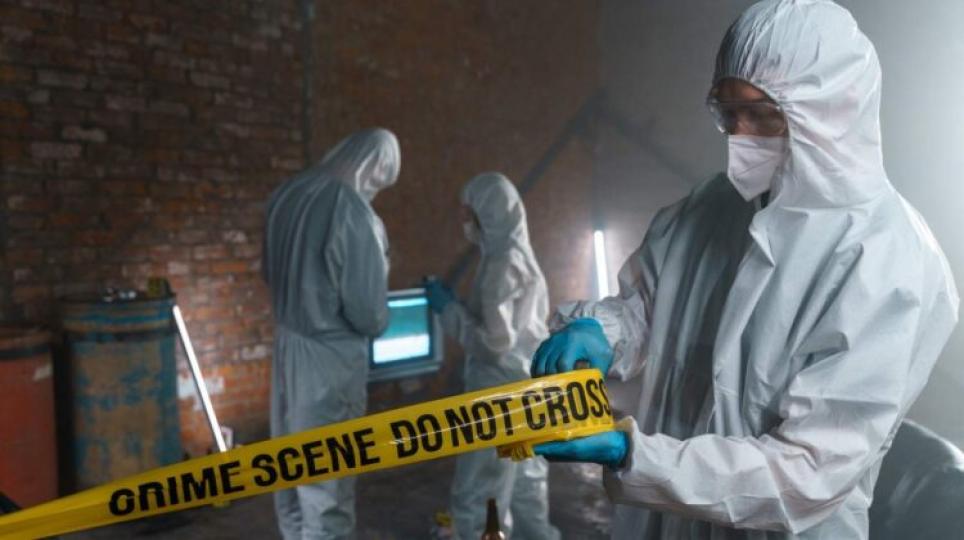
While the CSI franchise has dramatized the careers of crime scene investigators, forensic scientists, and criminalists, these real-world professionals own the skills needed to solve complex crimes. For individuals with strong STEM skills and an interest in law enforcement, a career as a criminalist is a solid choice. Not only do these professionals help solve crimes, but they are also part of a career field that the Bureau of Labor Statistics projects should grow by 16% over the next decade.
Within the following page, we spotlight the criminalist career, what the job entails, and what it takes to jumpstart a career in the field. Keep reading to learn more about this growing field essential to the effective functioning of criminal investigations.
What Is A Criminalist?
Criminalists—also commonly referred to as forensic science technicians or crime scene investigators—play a significant role in police investigations and use their professional and academic training to collect and analyze evidence. Top-performing criminalists have a deep working knowledge of forensic science and often other fields like criminal justice.
Legal and professional standards guide these workers in collecting, preserving, documenting, and analyzing evidence. Additionally, these professionals work alongside crime labs and other forensic specialists like toxicologists and odontologists. We highlight some standard job requirements below.
- Gather, record, and preserve evidence based on legal and professional standards
- Apply scientific techniques to examine physical evidence
- Utilize and maintain lab equipment
- Compose accurate and detailed reports
- Supply testimony in court
- Make sketches of crime scenes
- Reconstruct crime scenes
- Communicate with experts in fields like odontology and toxicology
Criminalist Salary and Career Outlook
Criminalists, forensic science technicians, and crime scene investigators—subtly different careers, but often used interchangeably—assist in criminal investigations while utilizing their academic and professional training. According to the Bureau of Labor Statistics (BLS), forensic science technicians earn a median salary of $61,930 per year.
Because most of these professionals work for local, state, and federal governments, they can expect a relatively stable career that’s bolstered by solid benefits and retirement packages. In addition to a stable career, BLS projects that the career could grow by 16% between 2020 and 2030—this growth translates to an estimated 2,700 jobs.
The top 10% of earners can make more than $103,000 annually and often take on various leadership positions. And while experience can significantly influence earning potential, criminalists can increase pay by completing graduate degrees and completing professional certifications.
How to Know if You Would Enjoy a Job as a Criminalist
While there isn’t a concrete set of facts that guarantee you’ll enjoy a criminalist career, most individuals entering the field have a knack for STEM-based coursework, enjoy teamwork, and have a deep interest in criminal justice and law enforcement. Folks entering this field typically have strong communication skills and are analytical and critical thinkers. Criminalists are also detail-oriented and rely on strong problem-solving skills.
Steps to Becoming a Criminalist
While there are various paths you can take to become a criminalist, one of the clearest and most popular options is a bachelor’s degree in a relevant field. Additionally, working criminalists have access to multiple ways to enhance their career options. Keep reading as we outline the steps you need to take when becoming a criminalist.
How Long Does it Take to Become a Criminalist?
Criminalists traditionally hold at least a bachelor’s degree in topics such as forensic science and criminal justice. These undergraduate programs require students to complete about 120 credits of coursework over about four years. During their undergraduate experience, degree-seekers tackle a mix of general education and major classes. Many students also complete internships as a way to enhance their skills and build professional connections.
Those with a bachelor’s degree in an unrelated field—and those pursuing additional skills—can tackle a master’s degree in forensic science, criminology, and even law. Full-time graduate students can complete these programs in 2-3 years, but some online programs allow learners to complete requirements in 12-18 months.
Once criminalists secure a job, the training process can take anywhere from six months to three years. During this time, professionals can enhance their skills, boost their professional competitiveness, and increase earning potential through various professional certifications. Popular specialization areas cover topics like digital forensics and white-collar crime.
What is the Difference Between Criminalists and Forensic Science Technicians?
The difference between criminalists and forensic science techs is hard to parse out because they’re often used interchangeably. But there is a subtle distinction as forensic science is a border term while criminalist refers to a professional subset that falls under forensic science. Additionally, criminalists often have expertise in criminal justice and criminology while forensic techs boast more lab-based expertise.
Other professional specializations that fall under forensic science include digital forensic analysts, forensic biologists, and forensic computer examiners.
FAQ
Get more Universities.com's college news, advice, updates, financial aid, and more straight to your inbox.
